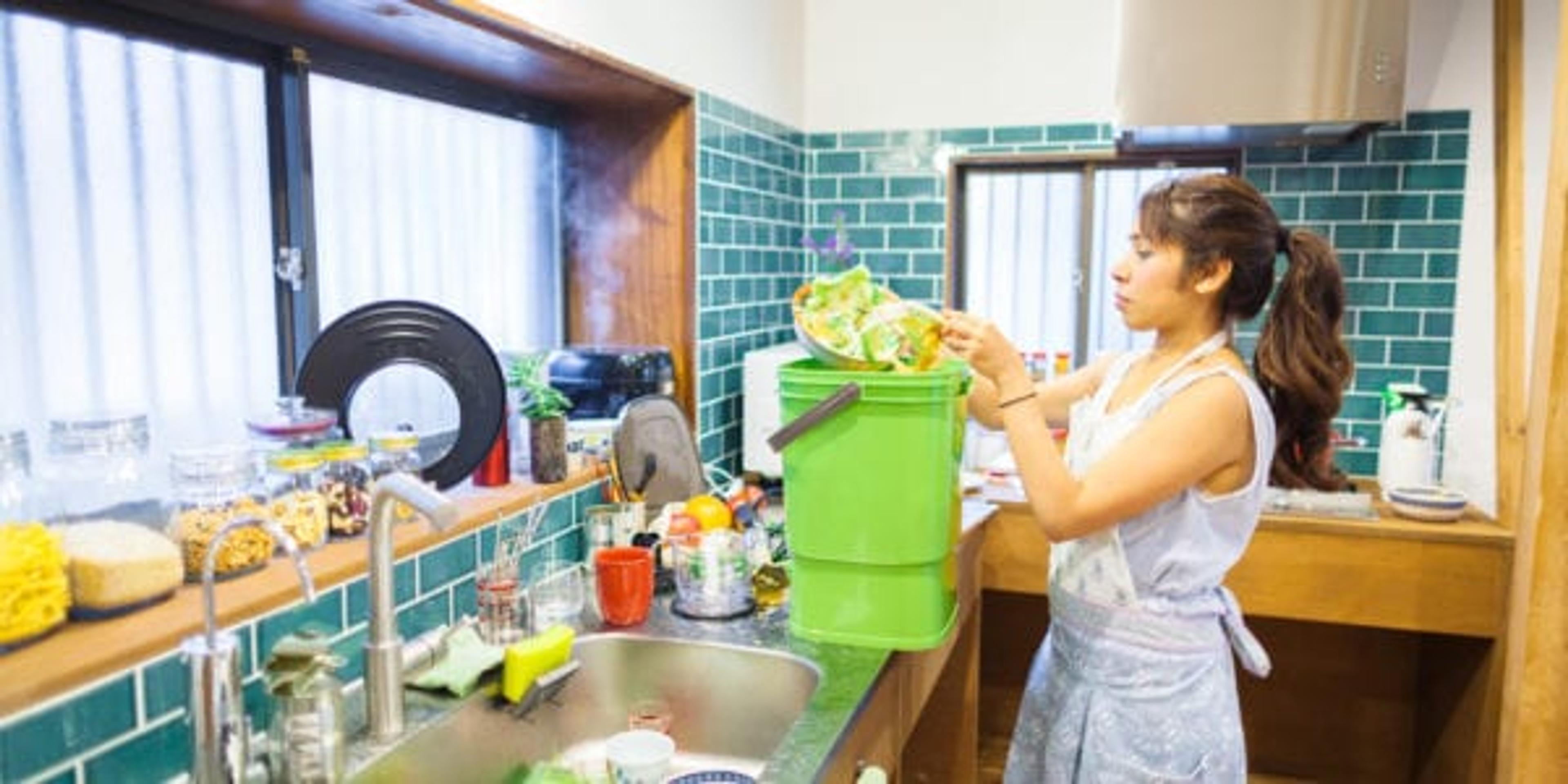4 Ways to Reduce Your Personal Trash Stream
Shandra Martinez
| 3 min read

Unless you are rolling your trash container out to the curb for its weekly pickup, or you’re dropping more empty containers into your recycling bin, you might not give much thought to your personal trash stream. But it’s steadily piling up. With every take-out coffee cup, plastic yogurt container or handful of kitchen scraps you toss in the garbage, you’re contributing to the mountain of personal and household waste that we leave behind every day.
In the United States, we generate about 292 million tons of municipal solid waste each year. That averages nearly 5 pounds per person, per day, according to the Environmental Protection Agency. Making up the bulk of this trash stream are things like paper, food waste, plastics and yard trimmings.
About a third of all this solid waste either gets recycled or composted, which is good. But environmental advocates agree there are a lot more things people could do to reduce their own personal trash stream. Some of these things can have a direct impact, lessening the amount of material that gets buried in landfills or burned in municipal incinerators each year. Other actions can expand recycling efforts or increase personal or local composting programs. Here are some tips to try:
Shop your local farmer’s market or CSA. When you get your food closer to home, either growing vegetables in a backyard garden or buying from local farmers, you can cut most food packaging out of the picture. Bring reusable or cloth bags when shopping your local farmer’s market and place fruits and vegetables directly inside. If you buy from a farm or Community Supported Agriculture co-op, your weekly share of food typically comes boxed or bagged with minimal packaging.
Buy reusable drink containers. Big packs of individual bottled water might be convenient, but they leave a lot of empty bottles rolling around, and not all wind up being recycled. To cut back on this profusion of crinkly plastic, use a refillable water container with a lid. They travel well in your car, to the office, and can be refilled for pennies from your tap. This is one way to stop a particular trash stream before it starts.
Find lots of uses for reusable grocery bags. Those tough cloth or plastic bags have lots of uses beyond the grocery store or farmer’s market. Most can be found in fun colors or prints. They make great beach and picnic bags, they store items for your next road trip, or deliver a kid’s homework project safely to school. They clean up fast with a trip through the laundry or a few swipes with a disinfecting wipe. And they cut down on litter from paper bags or flimsy plastic bags that rip or blow away.
Try composting. You don’t have to be a farmer – or even have a big backyard – to create your own compost pile. Yard waste and fruits and vegetable scraps are the perfect building blocks for compost, and will help you keep these things out of your trash. Most people start with a small composting bin or box in a corner of their yard. For step-by-step instructions on how to start backyard composting, check out this Michigan State University Extension guide.
Related:
Photo credit: Getty





